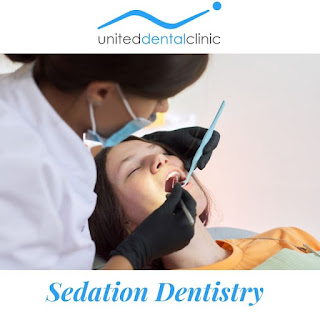The Best Part of Sedation Dentistry
Recent studies have discovered a connection between oral hygiene and overall health. For example, researchers have found an association between gum conditions and diabetes, rheumatoid arthritis, and heart disease.
Although studies can’t accurately determine the nature of some of these links, we can’t completely ignore the compelling evidence that suggests oral health problems connected to depression, premature births, osteoporosis, Alzheimer’s disease, etc.
So what do these researches suggest?
Firstly, maintaining your oral hygiene is beyond just taking care of your smile. It gives a new sense of importance for regularly scheduling your dental checkup and cleaning. This may be a scary deal if you suffer from dental anxiety.
Does even the thought of sitting inside a dental clinic give you cold feet? You most probably have dental anxiety. The good news is sedation dentistry can be helpful.
What Can Be The Causes Of Dental Anxiety?
Everyone has a separate coping mechanism for fear and anxiety. However, the root causes of dental anxiety can be narrowed down to the following:
- Anxiety from past bad dental experience
- Anxiety associated with the smell and environment of a dental clinic
- Fear of losing control
- Fear of the unknown
Understanding the actual causes of your dental anxiety is extremely helpful to treat it. Thankfully, with modern medical innovations and sleep dentistry, you don’t have anything to worry about.
How Does Sedation Dentistry Work?
When you book an appointment at a renowned dental clinic, the dentist first asks you about your general and oral health. You can discuss any of your oral concerns and your dental anxiety issues.
Depending on the complexity of the dental procedure you require and your level of anxiety, your dentist may suggest the following sedation dentistry options.
- Nitrous Oxide (Laughing Gas) – Inhalation of nitrous oxide is the simplest and safest sleep dentistry option to induce relaxation while you receive treatment. This is mild sedation and wears off quickly once the treatment is over.
- Oral Sedation – If you need stronger sedation for relaxing, oral sedation can be helpful. It won’t put you in a deep sleep during the treatment process. However, oral sedatives offer a deeper form of sedation than nitrous oxide.
- IV Sedation – Reserved for more extreme cases of dental anxiety. IV sedation is administered directly into your bloodstream through venous access. The sedation level can be adjusted during the procedure.
Don’t live in fear and anxiety. Schedule your dental checkup and cleaning today.



Comments
Post a Comment